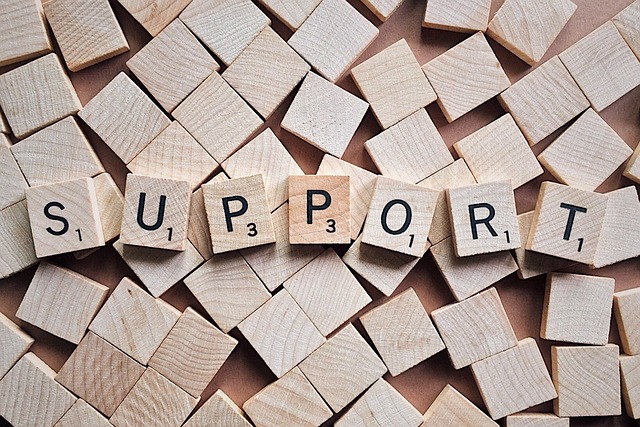Everence, a faith-based and member-owned financial group, partners with Philadelphia Yearly Meeting to provide financial resources and support. [Read more…] about Financial Education Available Through Everence and Philadelphia Yearly Meeting Partnership
Counseling
LGBTQIA+ Resources | PYM | Updated March 5th, 2025
Updated March 5, 2025
During Fall Continuing Sessions, Friends were provided with a minute from Philadelphia Quarterly Meeting standing in solidarity with LGBTQIA+ people. This minute, adapted from one shared by Germantown Monthly Meeting, connects to the ongoing threats to the safety and well-being of the LGBTQIA+ community and reaffirms the shared commitment to stand beside them.
Minute of Solidarity with the LGBTQIA+ Community
Below are a few provided resources that Friends may choose utilize, learn, and share when connecting with the LGBTQIA+ community members and Friends. The following resources were compiled by Karen Lightner of Germantown Monthly Meeting, There is hope that this list will continue to grow, if you have additional resources to share, we invite you to send them to communications@pym.org.
[Read more…] about LGBTQIA+ Resources | PYM | Updated March 5th, 2025
Program & Religious Life | A Year in Review
Hello Friends,
How has spirit moved among us in 2024? As we, the staff of PYM’s Program and Religious Life Department, reflect on this question, we have many joyful tidings to share.
The Big Picture
This year we saw many examples on how being a part of the Philadelphia Yearly Meeting community gives Friends a place to share their gifts and ask for support in times of need. This flow of sharing and receiving is a core part of what it means to be “part of the body.” Our PYM programs create spaces of joy, learning, spiritual nurture, and concrete resources. And none of it would be possible without Friends like you sharing their gifts, showing up, participating, and building community together. Thank you!
Read on to hear more about the programs and events we’re proud of this year.
[Read more…] about Program & Religious Life | A Year in Review
New Case Management Services for PYM Friends
A new resource is available for Friends in our yearly meeting!
Thanks to a generous need-based grant, members and regular attenders of PYM may be eligible to receive up to 10 hours of professional case management services through Living Care Home Services (LCHS). Eligibility is determined by individual need. LCHS, though based in Pennsylvania, serves the entire PYM region.
Case management can connect Friends with long term care, health care referrals, mental health resources, debt management and debt consolidation counseling, support with housing, help applying for social services, and help securing in-home care.
[Read more…] about New Case Management Services for PYM Friends
Creating Community: PYM to Offer Disability and Caregiver Support Groups
Throughout our yearly meeting, individual Friends and Monthly and Quarterly Meetings are diligently working to make our communities more accessible for any and all who are impacted by disability. We are overjoyed to share that the Philadelphia Yearly Meeting will be offering two different support groups: a Disability Support Group for Friends with disabilities and a Caregiver Support Group for Friends who are caregivers of those with disabilities. These support groups are open to members and attenders of PYM who self-identify as having and/or supporting individuals with any kind of disability, physical or mental, visible or invisible.
[Read more…] about Creating Community: PYM to Offer Disability and Caregiver Support Groups
Building Connections Through Grief, Loss, and Pastoral Care
On October 19th, Friends gathered at Chestnut Hill Friends Meeting for a Thread Gathering focused on grief, loss, and pastoral care. The day provided space for conversations about how meetings offer support during life’s difficult moments. Participants shared their experiences, noting that strong relationships help meetings respond when members are going through challenges.
[Read more…] about Building Connections Through Grief, Loss, and Pastoral Care
Exploring Thoughtful Planning with Compassion and Care
Discussing the stages of life is never easy, but it still remains one of the most essential acts we can offer both ourselves, our loved ones, and members of our meeting. The upcoming workshop, Creating Your Advance Directives and End of Life Plan, which will be one of the three at the Grief, Loss & Bereavement: A Pastoral Care Thread Gathering On October 19th, will provide a welcoming space for Friends to navigate this delicate subject. Participants will gain insight into critical documents, such as living wills and healthcare directives, that help ensure their values and wishes are honored. The facilitators, Susan W. Hoskins (Newtown Friends Meeting) and Susan K. Garrison (Media Friends Meeting), will lead a discussion on completing important materials, offering peace of mind to us and those we care for.
[Read more…] about Exploring Thoughtful Planning with Compassion and Care
Ways to Connect Before Sessions
Philadelphia Yearly Meeting has multiple October events that will provide ways to engage within our community before Fall Continuing Sessions. Three opportunities include fellowship of the thread gathering, a family-centered peace-building event, or the collective discernment over climate during a virtual threshing session. Each of these events offers a unique opportunity to engage with the PYM community and prepare ourselves spiritually for the work ahead. Whether you are seeking fellowship, family engagement, or discernment on critical issues, these events will help ground us as we come together as a faith community:
Friends Counseling Service: Key Questions Answered for Accessible Mental Health Care
The Friends Counseling Service (FCS) serves members and attenders of Philadelphia Yearly Meeting (PYM) who are in search for guidance, comfort, and assistance. This service offers accessible mental health care to Friends across PYM with counselors providing individual therapy, couples counseling, and family therapy sessions. We connected with Janaki Spickard Keeler, Friends Counseling Service Coordinator, who provided additional insight into the service by answering some key questions.
Supporting Children and Teens After Violence in the News
How do we talk to children and adolescents about gun violence and senseless tragedy? Parents and caregivers are helping their children process their feelings alongside their own, and signs of anxiety are different in children and adolescents when compared with adults. Pastoral care for children begins with pastoral care for their caregivers, and the resources below are offered to support parents and caregivers, educators, and Friends who care for and work with youth. A concern about election violence led to the creation of this event in October for families — Peace Begins with You: A Gathering for Children & Families — and we hope you will share this community gathering and the resources below with your meeting.
Processing in Developmentally Appropriate Ways
Children and teens will have different exposure to and understanding of violent incidents, and may feel anxiety, confusion, fear, sadness, or anger, and have questions about what they see and hear in the media and from friends. Children cannot always articulate their feelings, and they may show us how they are feeling through play or behaviors. Their anxiety may show up as: anger, negativity, difficulty sleeping (particularly falling asleep), defiance, and lack of focus. For adolescent youth, symptoms of anxiety may include recurring fears and worries about routine parts of everyday life, irritability, trouble concentrating, withdrawal, and complaints about stomachaches or headaches.
* Some practical advice for parents and caregivers
- Parents and adults need to first deal with and assess their own responses to crisis and stress.
- In PYM, adults seeking support can reach out to the Friends Counseling Service.
- Try and keep routines as normal as possible. Children gain security from the predictability of routine, including attending school.
- Be present. Listen to your children’s fears and concerns.
- Depending on their age, limit exposure to television and the news but be honest with kids and share with them as much information as they are developmentally able to handle with simple, honest answers.
- Reassure kids that the world is a good place to be (individuals are responsible for violent actions).
- Reaffirm attachments and relationships.
Resources for Adults Supporting Children and Teens
- Spiritual Practices for Use During a Traumatic News Event from Traci Smith
- Talking to Children About Gun Violence from Everytown for Gun Safety
- Talking to young children about community violence from Sesame Workshop
- Talking to Children About Violence: Tips for Families and Educators from the National Association of School Psychologists
- Helping your children manage distress in the aftermath of a shooting from the American Psychological Association
- Isaiah and the Worry Pack — Learning to Trust God with All Our Fears by Ruth Goring
- A Kids Book About Anxiety by Ross Szabo from the “A Kids Book About” series. The inside covers suggests, ”This book is best read together, grownup and kid.”
Making Faithful Practices Available
Children need us to hear their concerns, and we can provide reassurance even if we do not have answers. Lifting up our worry and anxiety in prayer is another way to acknowledge those feelings and place them in the care of our Quaker faith. These coloring pages “Prayers For When You Feel Anxious” includes both suggested prayers and three different sets of images for mindful coloring. This lesson plan about meeting for worship suggests that our worship as Friends is a container that is strong enough to hold big feelings —even hard ones—and the lesson could be adapted to help process recent events and heavy hearts, alongside encouragement to continue finding the Light in our world.
Election Violence Prevention: Youth Programs
- For shepherd people (gifted in leading or organizing groups): Create or visit a youth forum, small or large, of teens and young adults. Support them in learning about and actively practicing nonviolent strategies for the political changes that they want to see.
- For relationship people (folks who are good at conversations and making friends): Ask some young people for their thoughts about the upcoming election cycle. Engage in conversation. What do they believe is likely to happen? How does that feel? Do they have concerns? Do they have ideas for action?
- For word people (talented writers and/or speakers): See if you can find a high school or university class or club to which you can speak about the election cycle and ways to engage in political change nonviolently.
- For prayer people (spiritual grounded intercessors): Pray for young people in particular throughout the election cycle. When the opportunity arises, invite young people you know to pray actively for nonviolence.
- For motion people (naturally physically active doers): Consider holding a sports tournament on a Saturday or several weekends in a row. During breaks and over snacks, talk about the election cycle and the influence young people can have on nonviolence in their communities.
- For learning people (research ninjas and data analyzers): Find out what, if anything, your local schools are teaching in terms of voter and civic education.
- For creative people (artists, musicians, performers, and crafters): Find an opportunity to hold a creative workshop of some sort for young people, either by organizing a group or by being a guest artist for an existing group. Use election violence prevention as your theme.
Image: Pixabay.com









